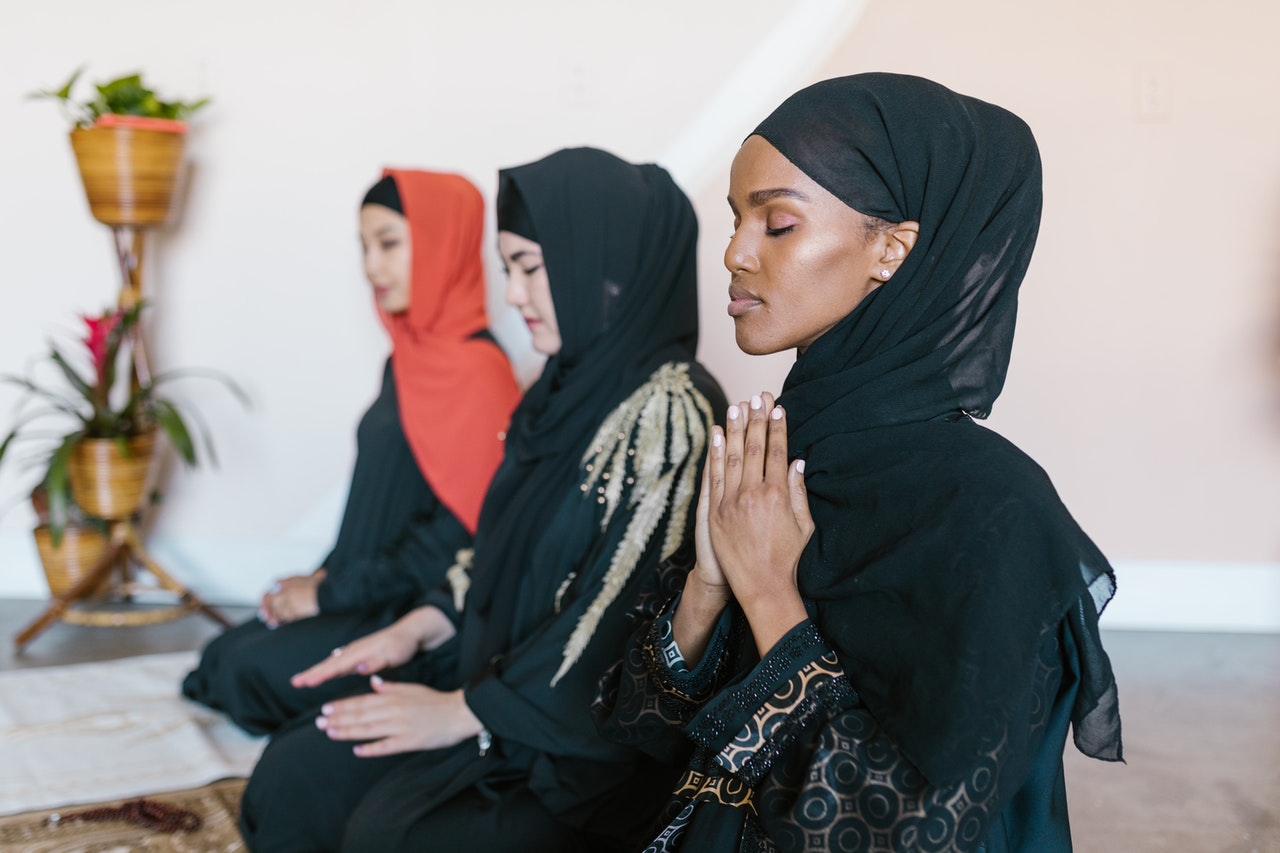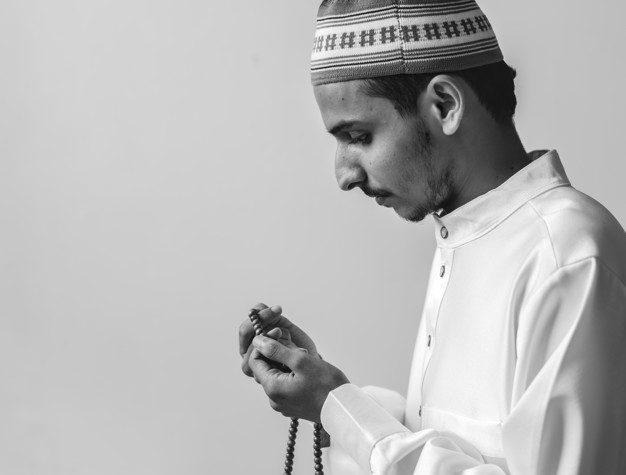Understanding the Meaning of Investment and Its Types, Also Know the Benefits - Tips to Avoid Losses When Investing
Investment has become a hot topic lately. So, what is the actual meaning of investment?

Kapanlagi.com - Glory to Allah is the meaning of one of the dhikr recitations. There are many virtues of tasbih recitation that Muslims need to know. Meanwhile, it is necessary to know the pronunciation of the dhikr recitation that means Glory to Allah.
Remembrance and glorification should always be done by Muslims. Because it can bring a lot of goodness. In addition, by remembering and glorifying, it can be a way to get closer to Allah SWT. This is in accordance with the following Qur'anic verse,
"So be patient, [O Muhammad], over what they say and exalt [Allah] with praise of your Lord before the rising of the sun and before its setting." (Q.S Qaf: 39)
That is why understanding and knowing the meaning and recitation of dhikr and tasbih is certainly important for Muslims to know. Well, below is an explanation of the sentence Glory to Allah meaning of tasbih recitation. As for the discussion of Glory to Allah meaning of tasbih recitation, the following has been summarized by kapanlagi.com from various sources.

(credit: pexels.com)
Knowing and understanding every reading and prayer in Islam is certainly important for Muslims. By doing so, we can better understand the meaning contained in each prayer and dhikr. Meanwhile, there are various dhikr readings that Muslims need to know. One of them is the meaning of the tasbih prayer, which is the glorification of Allah. But do you know how to recite the tasbih prayer?
The tasbih prayer is certainly well-known. However, some people may not realize that this dhikr reading is called the tasbih prayer. The meaning of the tasbih prayer is the glorification of Allah, which is recited as:
"Subhanallah."
Meaning: "Glorified be Allah."
In addition, there are also other Subhanallah readings that are often practiced. Among them are the following thoyyibah sentences:
"Subhanallah (Glorified be Allah), Subhanallah walhamdulillah walailaha illallah wallahu akbar."
Meaning: "Glorified be Allah, all praise is for Allah, there is no god but Allah, and Allah is the Greatest."
There is also the thoyyibah sentence:
"La ilaha illa anta Subhanaka Inni kuntu Minazhzhaliman."
Meaning: "There is no god but You, Glorified be You, truly I am one of the wrongdoers."
Tasbih is one of the dhikr readings that is often recited after prayer. In addition, the tasbih prayer can also be practiced as dhikr in the morning and evening. However, it is not uncommon for many Muslims to recite the tasbih prayer when witnessing certain events or unexpected incidents. That is the explanation of the meaning of the tasbih prayer, which is the glorification of Allah.

(credit: pexels.com)
Glory be to Allah, the meaning of reciting tasbih includes a good sentence. Where the meaning of Glory be to Allah in the recitation of tasbih is one of the sentences of praise to Allah SWT. It means that the praiseworthy nature of Allah SWT is not mixed with various forms of evil, falsehood, and so on.
Meanwhile, there are several virtues of reciting tasbih. What are they? Let's directly see the review of the virtues of reciting the sentence Glory be to Allah in the recitation of tasbih as follows.
- Obtaining goodness by practicing the recitation of tasbih.
- As a form of prayer and salutation, namely a sentence of praise to Allah SWT. This is like in a hadith that explains the importance of always remembering the Majesty and Greatness of Allah SWT.
"Then he was swallowed by a large fish in a state of dishonor. If he had not been one of those who always remember Allah, he would have remained in the belly of the fish until the Day of Resurrection. Then We threw him to a barren land while he was sick." (Q.S Ash-Shaffat 37: 142-145)
- Calming and soothing the heart.
"So be patient over what they say and exalt [Allah] with praise of your Lord before the rising of the sun and before its setting, and during periods of the night [exalt Him] and at the ends of the day, that you may be satisfied." (Q.S Taha 20: 130)
- Obtaining the reward and mercy of Allah SWT both in this world and the hereafter.
- Prayer to Allah SWT.
"And [mention] the man of the fish, when he went off in anger and thought that We would not decree [anything] upon him. And he called out within the darknesses, "There is no deity except You; exalted are You. Indeed, I have been of the wrongdoers." So We responded to him and saved him from the distress. And thus We save the believers." (Q.S Al-Anbiya' 21: 87-88)
Those are some of the virtues of reciting tasbih that can be practiced every day. So that it can help you understand the essence of the phrase 'Maha Suci Allah' (Glory be to Allah) and the meaning of reciting tasbih.

(credit: pexels.com)
In addition to the phrase 'glorifying Allah' which is the meaning of reciting tasbih, there are also several other dhikr recitations that can be practiced every day. Moreover, the recitation of tasbih, which is practiced after performing prayers, is inseparable from the recitation of tahmid, tahlil, and takbir. Therefore, below are other dhikr recitations besides the phrase 'glorifying Allah' which is the meaning of reciting tasbih.
1. Recitation of Tahmid
The recitation of tahmid is often uttered as a form of gratitude to Allah SWT. This expression of gratitude can be uttered on various occasions when receiving blessings and sustenance from Allah SWT. The recitation goes as follows:
"Alhamdulillah"
Meaning: "All Praise is due to Allah."
2. Recitation of Takbir
The recitation of takbir is also a form of dhikr to Allah SWT. The recitation goes as follows:
"Allahu akbar."
Meaning: "Allah is the Greatest."
3. Recitation of Tahlil
The third dhikr recitation besides tasbih is the phrase tahlil. The recitation of tahlil means that there is no god but Allah. Meaning that Allah SWT is unique or one. The recitation goes as follows:
"Laailaaha Illallah."
Meaning: "There is no god but Allah."

(credit: freepik.com)
Muslims are commanded to always remember Allah SWT. Because dhikr means a way to get closer to Allah SWT by uttering words of praise and greatness of Allah as the Lord of the universe. Meanwhile, there are many kinds of dhikr that Muslims can practice. One of them, as mentioned in the previous review, is tasbih, tahmid, takbir, tahlil, and others. But do you know what the meaning of dhikr is in Islam?
If we refer to the Indonesian Dictionary (KBBI), dhikr means praising Allah repeatedly. In addition, dhikr also explains about prayers or praise with a certain rhythm, for example, reciting dhikr with a certain melody. In addition, the meaning of dhikr can also be said as the act of uttering dhikr readings. However, the correct standard writing is zikir.
Meanwhile, in Islam, dhikr comes from the Arabic language, namely dzakara, yadzukuru, dzukr, or dhikr. Where dhikr means an action with the tongue and heart, whether it is uttered or mentioned and remembered. In addition, in Islam, the recommendation and command to remember Allah has also been explained in several verses of the Quran as follows:
"Ya ayyuhallazina amanuzkurullaha zikrang kasira."
Meaning: "O you who believe, remember Allah with much remembrance." (Q.S Al-Ahzab: 41)
Quoted from merdeka.com, according to the opinion of Sheikh Abu Ali Ad-Daqqaq, the meaning of dhikr is as a strong pillar on the path to Allah. In other words, dhikr becomes a way that can make us closer to Allah. Moreover, by remembering Allah SWT, there are many benefits that we can obtain.

(credit: freepik.com)
After understanding the meaning of dhikr, below are some benefits or virtues of dhikr. Amazing benefits of dhikr can be obtained by practicing it in daily life. Moreover, each recitation of dhikr also contains its own virtue. Well, here are some amazing benefits of dhikr that need to be known.
1. Obtaining Peace and Tranquility of the Soul
The first benefit of dhikr is being able to obtain peace and tranquility of the soul. This is explained in Surah Ar-Ra'd verse 28 which reads,
"Those who have believed and whose hearts are assured by the remembrance of Allah. Unquestionably, by the remembrance of Allah hearts are assured."
2. Obtaining Forgiveness of All Sins
Another amazing benefit of dhikr is obtaining forgiveness of all sins. By practicing dhikr, all sins can be erased. This is in accordance with the hadith in Sahih Al-Jami which reads,
Muadh Ibn Jabal RA said that the Prophet SAW said, ''No human being has ever filled a vessel worse than the stomach. Sufficient for any son of Adam are some morsels to keep his back straight. But if it must be, then one third for his food, one third for his drink and one third for his breath.'' (Sunan Ibn Majah Vol. 3, Book 9, Hadith 1945)
3. Obtaining Rewards of Paradise
One of the extraordinary virtues of dhikr is obtaining rewards of Paradise. A Muslim who practices dhikr in daily life will be promised Paradise by Allah. This is explained in a hadith in Bukhari which reads,
From Syaddad bin Aus RA, he said that the Prophet SAW said, "Whoever recites this dhikr during the day with complete conviction, then he dies on that day before evening, then he is included among the inhabitants of Paradise." Remember, only by remembering Allah will the heart become calm." (Q.S Ar-Aad: 28)
2.Getting Forgiveness for All Sins
Another amazing benefit of dhikr is getting forgiveness for all sins. By practicing dhikr, all sins can be erased. This is in accordance with the hadith in Sahih Al-Jaami which states,
Mu adh Ibn Jabal R.A said that the Prophet SAW said, ''Adam's children never did anything that guaranteed their safety from Allah's punishment more than remembering Allah SWT,'' (Sahih Al-Jaami 5633)
3.Getting the Reward of Heaven
One of the extraordinary virtues of dhikr is getting the reward of heaven. A Muslim who practices dhikr in daily life will be promised Allah's heaven. The explanation is in a hadith in Bukhari as follows,
From Syaddad bin Aus radhiyallahu 'anhu, he said that the Prophet shallallahu 'alaihi wa sallam said, "Whoever recites this dhikr during the day with full conviction, and then dies on that day before evening, he will be one of the inhabitants of heaven. And whoever recites it at night in full conviction, and then dies before dawn, he will be one of the inhabitants of Paradise." (HR.Bukhari (7/150, no. 6306).
4. Getting Closer to Allah SWT
Another benefit of dhikr is getting closer to Allah SWT. Because the command to do dhikr has also been explained in the Quran. In addition, by practicing dhikr, we will become closer to Allah.
"Would you like me to show you the best, most pure deeds in the sight of your King (Allah), and the highest in status, better for you than giving gold or silver in charity?" The Companions who were present said, "Yes (O Messenger of Allah)!" He said, "Remembrance of Allah the Almighty." (HR. At-Tirmidzi no. 3377).
5. Obtaining Many Benefits
Another virtue of dhikr is obtaining many benefits. One of them is that his sustenance is made easy. Because by doing dhikr, it can be an effort to make sustenance easy by Allah SWT. This is explained in a verse in the Quran as follows,
"So when the prayer is finished, spread out in the land and seek the bounty of Allah, and remember Allah much, so that you may prosper." (Q.S Al-Jumu'ah: 10)
That is the meaning of the phrase Subhanallah that needs to be known. So that it makes it easier for you to understand the meaning and content of the dhikr tasbih recitation.
Source: merdeka.com, liputan6.com
(kpl/gen/nlw)
Cobain For You Page (FYP) Yang kamu suka ada di sini,
lihat isinya
Investment has become a hot topic lately. So, what is the actual meaning of investment?
Here are some recommendations for 12-episode anime with exciting and tense stories. Plus, it's perfect for KLovers who don't like watching ongoing anime. Let's check it out, KLovers.
Motivational movie recommendations contain inspiring stories about someone's journey to achieve their dreams. Check out the list here KLovers.
As Muslims, understanding the meaning of Uswatun Hasanah is important. Well, here is an explanation of what Uswatun Hasanah means along with examples of its application in life that you can learn.
Surat Al Humazah means backbiter, understand the meaning and its uniqueness through the following article.
There are some really exciting Netflix movie recommendations based on true stories. Curious about what movie recommendations are based on real events? Let's check it out here, KLovers.
Here is a more in-depth explanation of Tri Koro Dharmo, which means "three noble goals", along with the history, members, and goals of this youth organization. Here's the explanation.
Science fiction is a genre that is quite popular in the film industry. It is proven that there are many people who look for recommendations for science fiction films when looking for something to watch.
The order of obligatory prayer readings starts with intention and ends with the reading of salam. Let's take a look, KLovers!
The following spicy snack recommendations come with recipes if you want to make them at home. That way, you don't have to buy them if you suddenly want to eat spicy seblak or chicken feet.
Therefore, from various sources, here is an explanation of what Haji Wada means, along with the law and basic principles of Haji Wada itself.
The meaning of kufur is often associated with a state opposite to faith. There are many kinds of kufur that you need to avoid. To understand the attitudes that need to be avoided, please read the explanation about the meaning of kufur, its types, and how to be grateful to Allah below.